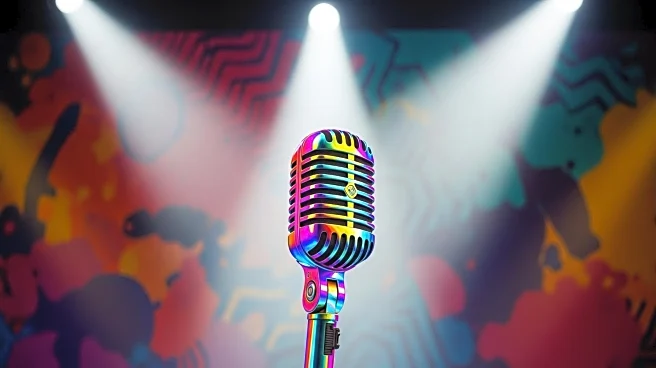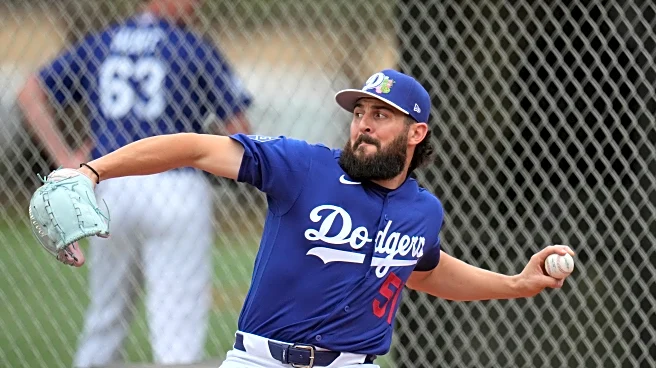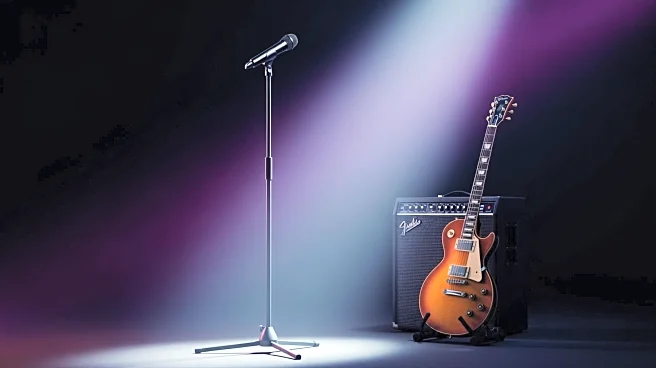What's Happening?
Bad Bunny hosted the season premiere of 'Saturday Night Live,' where he addressed criticism from Fox News regarding his upcoming performance at the 2026 Apple Music Super Bowl halftime show. The backlash stems from conservative figures who argue that Bad Bunny's selection contradicts American values, despite Puerto Rico being part of the United States. An advisor to President Trump suggested that Immigration and Customs Enforcement might be present at the Super Bowl due to Bad Bunny's performance. Homeland Security Secretary Kristi Noem also criticized the NFL's choice, stating that immigration officials would ensure safety at the event. During his monologue, Bad Bunny responded to the criticism by speaking in Spanish and thanking his Latino fans for their support.
Why It's Important?
The controversy surrounding Bad Bunny's Super Bowl performance highlights ongoing cultural and political tensions in the U.S. The criticism from conservative figures reflects broader debates about national identity and the inclusion of diverse voices in major American events. The involvement of immigration officials at the Super Bowl could have implications for public safety and the event's atmosphere. Bad Bunny's response on 'SNL' underscores the importance of representation and the influence of Latino artists in mainstream American culture. The situation may affect public perception of the NFL and its efforts to embrace diversity.
What's Next?
The Super Bowl is scheduled for February 2026, and the presence of immigration officials could become a focal point of discussion as the event approaches. The NFL may face pressure to address concerns about safety and inclusivity. Bad Bunny's continued success and visibility in the U.S. could further challenge traditional narratives about American values and cultural representation. The response from political leaders and the public will likely shape the discourse around the Super Bowl and similar events.
Beyond the Headlines
The backlash against Bad Bunny's performance raises questions about the intersection of entertainment and politics. It highlights the role of artists in challenging societal norms and the potential for cultural events to become platforms for political expression. The situation also reflects broader issues of immigration and national identity, which continue to be contentious topics in U.S. politics.










